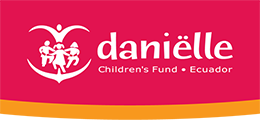Postmodernism – Social Construction
DCF is in constant transformation. We are more than an organization; DCF is the human relationships we continuously build and the people that are part of our projects and activities… The most important thing for us is HOW we relate to children, adolescents, their families, communities, between us as a team, with other professionals, public and private organizations, donors…
We are interested in the postmodernist ideas, because they make us question the existence of the sole and only truth or as Harlene Anderson (1999) states, the existence of “a real, external world” (pg. 72) that can be described in objective terms,
Postmodernism sees knowledge rather as a “social construct, and knowledge and the knower as interdependent” (pág. 73).
The world is a social construct that cannot be interpreted in only one way. Every one of us lives and tells reality in different ways. That is something beautiful and it leads towards the complexity of the reality, with infinite possibilities. It liberates from the necessity to convince the other about how we see things. Rather we develop a genuine interest in how the other might see it in order to learn and transform together. Each perception of reality is like another voice within a polyphony of many voices.
We seek to liberate ourselves from the necessity to control and surrender ourselves to uncertainty; enjoying the diversity of the multiple viewpoints and truths.
The collaborative and dialogical practices
The CDP is a philosophical stance (Anderson, 1999) on life; they are a way of being and living, through which the other person is recognized as a unique being, capable of being an agent of his/her transformation, of acknowledging his/her strengths and resources. We are not here to solve a problem but to facilitate a process of mutual transformation.
The main elements of our stance are:
Source: Anderson, Harlene. (1999). Conversación, Lenguaje y Posibilidades. Paraguay: Amorrortu Editores S.A.
UNCERTAINTY
We are not sure. We are not protected by our knowledge. What is important is not so much that we have preconceived ideas, but more what we do with them. It is of our will to risk and constantly doubt. We hold onto uncertainty, letting go of the imaginary control.
NOT KNOWING
We don’t know what the other person wants to say or needs, but rather commit to learning together and trying to understand him/her, searching for significance through language, accepting that we can never completely understand the other person.
TENTATIVENESS
We are free to contribute to the conversations with our education, experiences, and knowledge; however, we tentatively do this, for example, by mentioning: “when you told me this, something that I read recently, came to my mind. Would you like me to share it with you? (…) What do you think about what I just shared?” This way we create the opportunity for the other person to decide what to do or not do.
EACH PERSON IS THE EXPERT IN HIS/HER LIFE
The other person is the one that knows what is happening, what he/she needs and his/her own resources and capabilities. Therefore, in the dialogue, we seek to walk along together towards the unknown instead of controlling and guiding. Instead of being experts, we are curious and seek to understand, at the same time conscious that we will never comprehend completely.
WE ARE GUESTS
We are guests in the life of children, adolescents, and their families. We are invitees, therefore, we go as far as our host allows us. (Harlene Anderson, 1999)
RELATIONAL
We exist and co-construct our identity in the relationship with other people. We cannot exist without the other person. The relationship allows us to build different realities.
TRANSFORMATION
In each encounter with the other person, we learn mutually and generate new knowledge. We are in constant transformation.
FAITH
Having faith in the other person, we visualize and accompany in the creation of new resources that allow to face the situation someone is living in, setting aside any prejudices and building bridges towards other possible realities.

